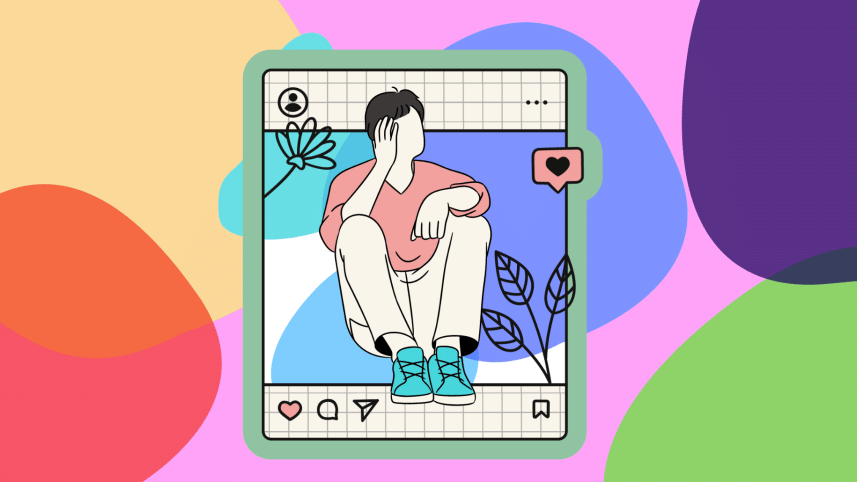Boredom, and How Social Media Makes It Worse

Recently, as I sat waiting to be called for my IELTS Speaking Test, I felt a strong urge to ask one of the people in charge of maintaining the exam conditions to ask for my phone back. This was strange, for the situation was not new to me. I had taken many exams before, and had to wait much longer than I did that day, that too without any devices to distract myself.
However, this test was a familiar one, and my wanting to just get it over with, made me unnaturally restless during the 30 minutes before which I was called. While the feeling surprised me, this need to turn to our gadgets at the slightest hint of boredom is one that has become more than common in the past decade.
Boredom, by itself, is universally considered an undesirable state to be in. It also seems to be ancient. A New Yorker article titled "What Does Boredom Do to Us — and for Us?" mentions not just industrial age philosophers but Seneca from the first century who used "taedium vitae" to describe nauseousness at the repeated nature of life. It can be distressing and even excruciating, and this is a problem that plagues not just adolescents and adults beginning their work-life but older segments of the population as well.
We can get a sharp understanding of just how dire this state can be if we look at a 2016 BBC article mentioning the case of Frederic Desnard who sued his previous employer for "boreout", a term derived from burnout.
Furthermore, links have been found between boredom and adverse mental health conditions. A Washington Post article titled "Boredom's link to mental illnesses, brain injuries and dysfunctional behaviors" details how agitated people can be when bored, even for 10 minutes. This was indicated by an experiment where one participant shocked himself 190 times when placed in a situation with zero distractions.
It might seem like a paradox, but the whole issue seems to have been significantly exacerbated with the advent of the digital age where unimaginable amounts of content is produced every second.
A line that perfectly encapsulates the differences in reactions to boredom between past generations and this one comes from a Vox article called, "Bored and lonely? Blame your phone", where it says, "Because of the promises of the digital age, when we experience those feelings, we're more surprised and alarmed than our ancestors were."
The words come from one of the authors of a book called Bored, Lonely, Angry, Stupid: Changing Feelings about Technology, from the Telegraph to Twitter where comparisons are made between people of the 19th and 20th centuries and people today, in terms of how both groups felt about boredom. The author states that while former generations viewed monotony as an ordinary feature of life that couldn't be avoided, the potential of instant and constant entertainment and companionship provided by our devices today, make us feel worse when we feel bored and alone.
In addition, the lack of effort with which we are able to use social media is also to blame as it offers no challenges for us to overcome. A study at Kent State University found that the usage of social media increased boredom while self-selected schoolwork decreased it. The results might be shocking, but as members of this generation, we know all too well that this has a grain of truth.
References
1. BBC (July 26, 2016). Is there such a thing as 'boreout'?
2. The Washington Post (July 17, 2021). Boredom's link to mental illnesses, brain injuries and dysfunctional behaviors
3. Vox (May 5, 2019). Bored and lonely? Blame your phone.
4. Kent State University. Social Media Use Increases Boredom and Homework Decreases Boredom, Kent State Research Shows
Matilda sincerely believes it is always other people's fault. Tell her she's right at matilda.tilda1234@gmail.com



 For all latest news, follow The Daily Star's Google News channel.
For all latest news, follow The Daily Star's Google News channel.
Comments